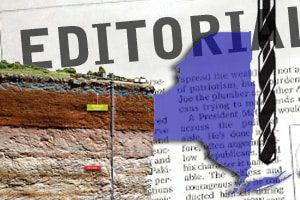
New York environmental officials have released its long-awaited regulations governing new hydraulic fracturing (fracking) wells to be dug in the state. According to a report from Energy In Depth (eidmarcellus.org), the new regulations were made public late Wednesday night, long after the close of the business day, and posted on the state’s Dept. of Environmental […]
 New York environmental officials have released its long-awaited regulations governing new hydraulic fracturing (fracking) wells to be dug in the state.
New York environmental officials have released its long-awaited regulations governing new hydraulic fracturing (fracking) wells to be dug in the state.
According to a report from Energy In Depth (eidmarcellus.org), the new regulations were made public late Wednesday night, long after the close of the business day, and posted on the state’s Dept. of Environmental Conservation Web site. The rules will be subject to public comment until mid-January 2013 and after that will be formally ratified, opening the state to natural gas explorers who will open fracking wells wherever they are able to lease land from property owners.
On the surface, the proposed rules appear tougher than those on the record in neighboring Pennsylvania. Complications with fracking drilling there, including many residents who say local fracking wells have contaminated private and public water supplies as well as groundwater, the air, and created a strain on local natural resources and infrastructure.
Lax regulations there have likely compounded those problems and New Yorkers, backed by an army of environmental advocacy groups, took advantage of a state moratorium and ensured that any proposed regulations in the state to allow fracking drilling would at least be stricter than those to the south.
The new rules are specific on where new fracking wells may not be dug. This includes not within 500 feet of a residential water well, or 500 feet of an inhabited dwelling or public location. The rules also prevent wells from being dug within an aquifer and not within a 500-foot buffer zone of a primary aquifer. Wells may not be dug in a 100-year floodplain or within 2,000 feet of a public water supply, a natural or man-made lake or other impoundment.
Several studies show that people living within a half-mile of an active fracking well face the greatest risk of problems associated with fracking drilling, namely water and air pollution. Some living close to fracking operations in Pennsylvania believe that many of the toxins used in the fracking process have contaminated their private water wells beyond use, forcing them to cap the wells and find alternative sources of fresh water.
New York’s proposed rules also govern how the chemicals used in the fracking process are stored prior to and after their use in the controversial drilling process. Along with the other problems associated with fracking drilling, how the dangerous elements of the process are stored has become a source of increased worry. In many fracking operations, these dangerous toxins are stored in open-air pits but New York proposes that any fracking well opened in the state must use a closed-loop tank system “unless an acid rock draining mitigation plan for on-site burial of such cuttings is approved” by state regulators.
The rules also call for increased disclosure about fracking operations, including the notification of local municipal officials of new operations close to their borders. Drillers are also being required to provide a litany of information to state regulators before opening a new well in New York.


